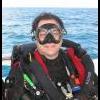None of the units out a while back seemed to be very reliable at all. Did you read the 2003 third party test from Equipped to Survive Foundation? They have conducted another test in 2005. I don't know what year you purchased your unit. . . .
Taken from a press release of McMurdo after the updated testing.
...press release...press release...press release...press release...press release...
McMurdo Precision EPIRB and FastFind Plus PLB Perform Faultlessly In New Tests
PORTSMOUTH, UK - 7/7/04 McMurdo Limited today announced outstanding performance results for its upgraded FastFind Plus PLB and Precision EPIRB products after earlier tests questioned product performance. The new tests were designed to replicate the earlier Equipped to Survive Foundation tests as closely as possible. The PLB land tests took place on the sites of the original study in Santa Cruz, California. The EPIRB and PLB marine tests took place under very similar conditions, but in United Kingdom waters.
The McMurdo tests also incorporated pre-upgraded products that were the subject of the original Equipped to Survive Foundation trials. Peter Forey and the McMurdo team observed significantly superior product performance compared to that reported by Equipped to Survive.
All the updated beacons performed faultlessly, acquiring and transmitting an accurate GPS location within a few minutes, even under adverse conditions, said Peter Forey, Managing Director of Sartech Engineering Limited. Forey is an internationally acknowledged expert in the field of 406 MHz beacons and acted as an independent witness at all the tests. Also present at the land tests in California was a representative from West Marine, the US boating and leisure retailer, who supported the original Equipped to Survive tests.
Under severe forest canopy and canyon obscuration, the improved beacons worked reliably in the trials. The performance of the upgraded FastFind Plus products improved dramatically. The tests highlighted the difficulty in testing GPS based products in a forest environment due to the periodic variability in satellite coverage, said Chuck Hawley, Vice President of Product Development at West Marine.
The FastFind Plus PLBs were tested under 11 scenarios ranging from expansive sky views to a small forest clearing and in a life raft. The average time to achieve a GPS fix was 1:28 minutes. The average time for the PLB to transmit a position signal was 3:08 minutes. In every case where GPS functionality was originally demonstrated, the McMurdo PLB successfully acquired and transmitted GPS position.
EPIRB Results
The Precision EPIRB (G4) was tested under seven scenarios ranging from expansive sky views to operation at sea in simulated rainfall and in a life raft. The average time to achieve a GPS fix was 1:48 minutes. The average time for the EPIRB to transmit a position signal was 3:21 minutes. In every case the EPIRB successfully acquired and transmitted GPS position, even under arduous marine conditions.
We are delighted with these results. We have proven beyond any doubt the reliability of the industry-standard 406 MHz COSPAS-SARSAT distress system and the benefits of integral GPS functionality. Peter Forey and our technical team are in the process of finalizing the complete analysis of the data from the recent tests. We will be making a full test report, verified by Mr. Forey, available later this month, said Gary Mullins, Managing Director of McMurdo today. We know that our customers may have been concerned by reports resulting from the original trials. We shared this concern and made the decision to initiate an upgrade, added Mullins.
The upgrade is free of charge and available to all FastFind Plus customers, who we are in the process of contacting. The upgrade for the Precision and G4 EPIRBs will be available in August and we will be contacting these customers at that time. Customers can contact us in the UK on +44 (0) 2392 623978 or in the USA at 1-800-576-2605 to arrange for the upgrade. On behalf of the entire McMurdo team, I would like to express my thanks to the hundreds of customers who have been in touch offering us their full support over the past few weeks, concluded Mullins.
The notice only applies to the following McMurdo models:
SOS Precision 406 GPS EPIRB, Cat II
SOS Precision 406 GPS EPIRB, Cat I
G4 406 GPS EPIRB, Cat II
G4 406 GPS EPIRB, Cat I
Sailor 406MHz Satellite GPS EPIRB
FastFind Plus Personal Location Beacon with Built-in GPS
It does not affect:
SOS Rescue 406 EPIRB, Cat II
SOS Rescue 406 EPIRB, Cat I
E3 EPIRB, Cat II
E3 EPIRB, Cat I
Sailor 406MHz Satellite EPIRB
FastFind Personal Location Beacon
Equipped to Survive 2005 Update
Conclusions
The authors of this evaluation are of the opinion that the following conclusions can be drawn from the data and experience collected during this evaluation and the previous evaluation, and general observations of the use of these beacons during this evaluation and elsewhere:
The self-locating (GPS) performance of the beacons in this evaluation appears to be satisfactory for the most part under the circumstances that one would normally expect to receive a GPS location from a mid-level performance GPS handheld receiver without an amplified antenna. Under most moderate adverse environmental conditions a GPS-derived location will be reliably transmitted by these location protocol beacons.
The unsatisfactory self-locating (GPS) performance of the McMurdo beacons that was evident in the first evaluation appears to have been satisfactorily addressed by McMurdo's free upgrade program. Anyone who owns a McMurdo beacon that has not yet been upgraded should do so immediately.
In the opinion of the authors, the results of this test validate the functionality and desirability of a GPS-enabled beacon's added capability as a means of enhancing survivors' chances of rescue. While neither a panacea, nor without notable limitations, the current state of the art in Location Protocol 406 MHz Distress Beacons appears to be capable of improving the likelihood of a successful rescue by potentially shortening response times in many likely survival scenarios. The location information generally will allow for quicker dispatch of SAR resources and the more accurate location, compared to a Doppler-derived location, reduces the search area with resultant likelihood of quicker detection of survivors when SAR resources arrive on scene. Consumers seeking a survivability advantage would do well to consider self-locating beacons (those with GPS) as an option. . . .
Edited by ScubaDadMiami, 01 January 2006 - 11:06 PM.













